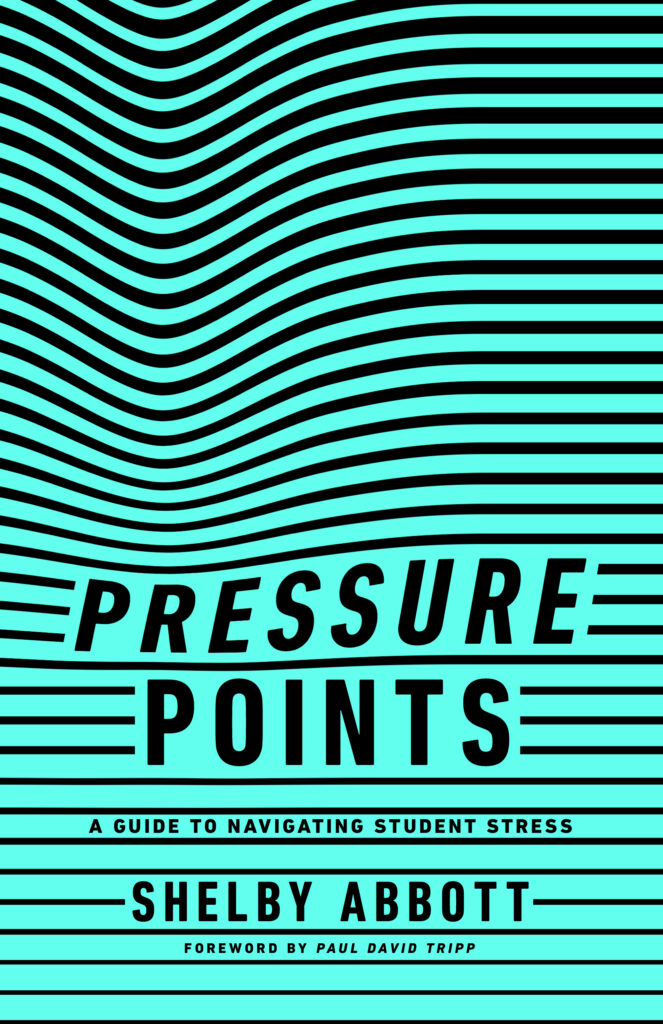When you’re a student, specifically a college student, it’s safe to say a lot of you probably have a weird relationship with your parents in comparison to how it was back in high school. They are these people who—after being your governing authorities for eighteen years—are still giving you the ability to go grocery shopping and buy textbooks. But now they aren’t really calling the shots with how you live out your daily life. You used to depend on them for nearly everything, and you (probably) naturally surrendered to their authoritative guidance, but that’s just not the case now.
This is an uncommon time of “limbo” where your parents aren’t in charge of you anymore, but they’re still kind of in charge of you because you’re not on your own in the real world just yet. And because of this unique time period, there’s great possibility for tension. In other words, you’re probably ready to be in control of every facet of your own life, but because you’re still dependent on them, there’s an existing tether to Mom and Dad’s rule.
As frustrating as this limbo time can be while you’re at college, let me tell you I understand how you’re feeling, and I’d love for you to learn from my missteps in the past. I had a mixed bag of making some great choices in relation to my parents and some poor ones as well.
As a college student, it’s important to strike a healthy balance between autonomous decision-making, and respect for your parents’ wishes. It’s easy when both of your desires line up and everything is harmonious, but when there’s a difference of opinion, how do you appropriately wrestle with their disagreement? Of course, there are many different scenarios depending on who God has placed in your life as parents or guardians, so instead of getting too specific and thus alienating most of you, let’s first talk more generally about our biblical call to submit to the ultimate authority—God himself.
Dependence and Surrender
The life God wants us to live begins with the staunch realization that we are absolutely helpless and hopeless apart from his empowerment. We desperately need God in the mental, physical, and emotional valleys, because those low points in life are often where we come to the end of ourselves, giving room for the greatest spiritual growth to occur.
God is exceptional at constantly bringing us to times when we feel out of control. He’ll use health problems, financial issues, desires, habits, sin patterns, family complications, or whatever it takes to shake us free from us. And when that magical moment comes when we finally let go of our desire for control, our only option is to depend on him. In fact, he will specifically engineer circumstances so we feel out of control. I must learn depend on God when control dissipates.
The first part of understanding what it means to walk by faith is dependence. The second is active surrender. Dependence and surrender are complementary toward each other, and they go hand in hand nicely when we talk about our struggles with trying to control everything. We cannot fully surrender our wills until we are convinced our situation is hopeless. As long as we’re able to spot a way out, we’ll probably go for it.
If you were to ask any lifeguard what the standard procedure was for rescuing a drowning person in a large body of water, he would tell you it’s imperative to leave someone alone until that person comes to a point of surrender. Meaning, if a drowning man believes he can rescue himself, he will continue to kick and flail about in the water as a danger to himself, or anyone else trying to help him. To complete the rescue and not get dragged down by the drowning person, a lifeguard is trained to swim up to the point where she is just out of the reach of the man. Once he finally gives up, stops flailing, and starts to go under, that’s when the lifeguard should make her move and rescue him from drowning. Until the man in the water gives up, he isn’t really in a position to be helped. He must surrender to the aid of the lifeguard.
Similarly, as long as we believe we can control things, we aren’t willing to surrender our lives to the God who created us. We’ll work against him rather than with him in the process. But when we realize we can’t make it on our own, we are like a drowning man surrendering to the hand of his rescuer. Freedom and life are not found in trying to govern every aspect of our entire lives. They are found in active dependence on the Lord and his plan, and active surrender into his care for our well-being, even when we aren’t able to see it.
If you really believe in someone, you will trust that person. But if you cannot trust the person, you instinctively work to control him. Likewise, if you are wrestling with God for control of your life, it’s because you don’t trust him. You’re afraid he doesn’t know what’s best for you, and you yourself would be better suited to rule authoritatively over your life.
But this is obviously not true. Your life is not a customizable series of apps on a smartphone. And while it may be hard to believe, God actually loves us more than we love ourselves. I know that’s difficult for me to wrap my mind around, because I think I’m my own biggest fan, but there is One greater than I who loves me more deeply than I could ever love myself.
Don’t let your desire to control your life control your life (yes, you read that right). Rest in his care and guidance, and look at verses like this with new eyes and open hands:
Trust in the Lord with all your heart, and do not lean on your own understanding. In all your ways acknowledge him, and he will make straight your paths. (Proverbs 3:5–6)
The Fifth Commandment
It’s clear we are biblically called to surrender our lives to the authority of God, and I wanted to make sure we put first things first. That being said, our parents are not God . . . you probably know this already. They are, however, the parents God has placed in our lives, and it’s important to understand how we are to live out the fifth of God’s Ten Commandments when it says, “Honor your father and your mother” (Exodus 20:12).
In her book This Changes Everything, teenage writer Jaquelle Crowe gives a helpful framework to her young readers when she talks about how to act toward their parents, thus fleshing out what it means to practically honor them. Her points are to learn from their wisdom, obey their authority, mature from their discipline, be grateful for their care, and treat them with genuine kindness. She also points out the Bible gives us a compelling image of Christian parents, because they are teachers (Proverbs 1:8–9), authorities (Ephesians 6:1), disciplinarians (Proverbs 13:24), and individuals (Genesis 1:27). Our earthly honoring of them reflects our honor for the greater heavenly One.
Our parents are intended to be our models of the authority structure the Lord has crafted between us and him. But parents are sinful, and they make mistakes all the time. We as children sadly get a front-row seat to all of their errors, so our sin and theirs gets consistently woven into the fabric of our family dynamic. This obviously needs to be taken into consideration as they instruct us and exercise their authority over us, because it’s never okay to sin even if our parents are telling us to do so. God is our ultimate authority, and we will all be held accountable to him.
When we honor our parents in a healthy, biblical way, we are in turn honoring the authority of God and bringing glory to his name. It’s not always going to be perfect, and family issues are often the messiest in our lives, but when we submit control of our lives to God first, we are much more aligned to a healthy connection of reverence and respect for our parents in the midst of their sin and ours too.
Just because you’re a college student doesn’t mean the authoritative structure God has orchestrated between you and your parents is now severed. You may not be a child anymore, but it’s the important call of God to honor your parents in deference to the Lord. In doing so, it enriches your relationship with Dad and Mom while simultaneously bringing glory to your Creator.
Excerpted adapted from Pressure Points: A Guide to Navigating Student Stress ©2019 by Shelby Abbott. May not be reproduced without prior written permission.
PRESSURE POINTS: A GUIDE TO NAVIGATING STUDENT STRESS
From navigating failure, roadblocks, and spiritual warfare to tackling relevant, hard-hitting topics such as drinking, sex, dating, pornography, and the fear of missing out, Pressure Points encourages college students to consider Jesus in the midst of everyday struggles.






